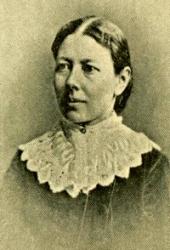1807 - 1878 Person Name: J. Dowling Hymnal Number: d55 Author of "Children of Zion, what harp notes are stealing" in Sunday School Hymn Book Dowling, John. (Pavensey, Sussex, England, May 12, 1807--July 4, 1878, Middletown, New York). Baptist. Father of Rev. George Thomas Dowling. Educated in England; received D.D. from Transylvania University in 1846. Pastorates in Catskill, New York, 1832-1834; Newport, Rhode Island, 1834-1836; New York, New York, 1844-1852, 1856-1868; Philadelphia, 1852-1856; Newark, New Jersey. Author of various works, including Exposition of the Prophecies (1840), Defence of the Protestant Scriptures (1843), History of Romanism (1845). Edited and translated other works. In 1849, published A New Collection of Hymns, Designed Especially for Use in Conference and Prayer Meetings, and Fmaily Worship (New York: Edward H. Fletcher). The seven hymns in this collection by Dowling are as follows:
Come, Lord, dwell in my bosom
The weary dove in search or rest
O, my soul is cast down
A weak and weary dove, with drooping wing
Welcome, thrice happy hour
Go to the mercy seat
Children of Zion! what harp-notes are stealing
The last of these was included in other collections as well.
--Deborah Carlton Loftis, DNAH Archives
John Dowling

